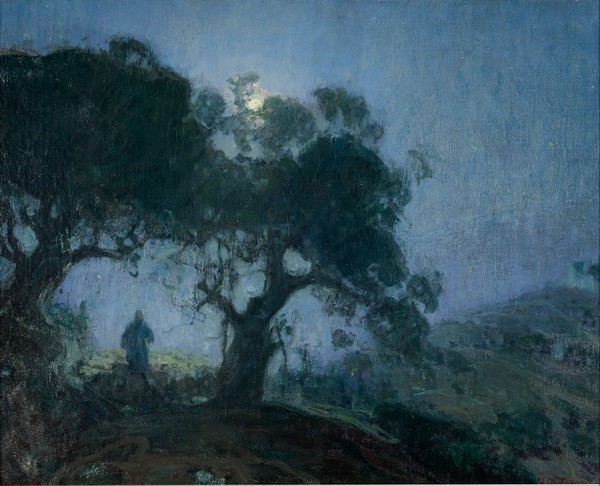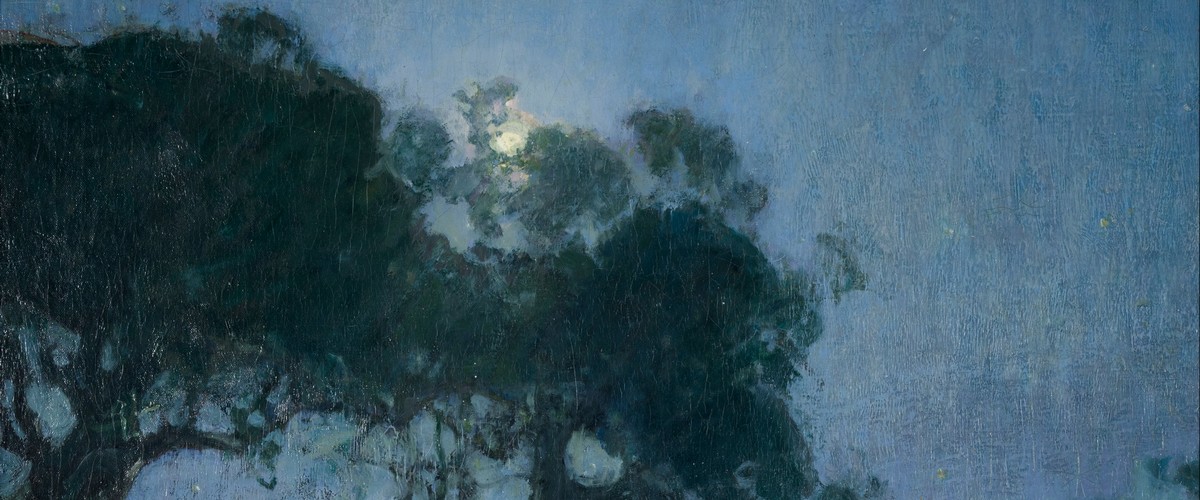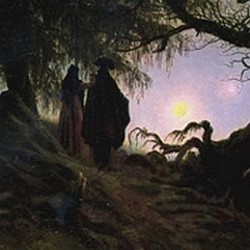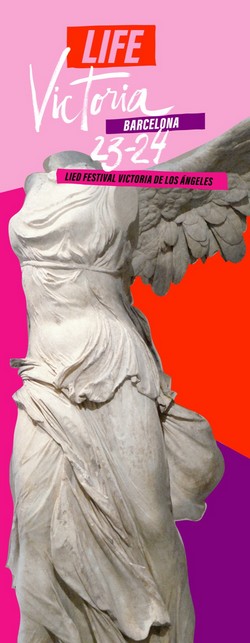
Legend has it that Richard Strauss wrote Traum durch die Dämmerung in twenty minutes. His wife went to look for him for a stroll, he told her he was busy, and she gave him twenty minutes to compose the song. The anecdote is reproduced in many publications (often alluding to Pauline de Ahna's strong character), but the truth is that I didn't find the source.
Whatever the time it took him, on that day, June 7, 1895, Strauss composed none other than three Lieder, published as Opus 29, the three of them with poems by Otto Julius Bierbaum: Traum durch die Dämmerung, Schlagende Herzen and Nachtgang. At that time, Strauss had just begun to write operas and had come into contact with the writer as a possible librettist for his operas. They didn't write any work together, but Bierbaum's poetry inspired five songs to Strauss: three from Op. 29, Junghexelied (1898) and Freundliche Vision (1900).
I talk to you about the grey hour a few weeks ago; the grey hour is (when referred to the evening) the time from the sunset to the dark night. Bierbaum's poem refers to this name when he speaks of dämmergrau, (grau means grey in German) and also refers to the name used by photographers, the blue hour, in the last verse of the poem, that tells of "ein blaues, mildes Licht", a blue, mild light; according to the description, it appears that the poetic voice walks from the east to the west, following the last light of the day. The poem that motivated that article about the grey hour, Zwielicht by Eichendorff, set to music by Schumann, explored the most disturbing face of this time of the day, while Bierbaum's poem, published in 1892 in Erlebte Gedichte, tells us of its most exciting face, because Traum durch die Dämmerung [Dreaming through the twilight] is a love song. The narrator goes to a love date while the night falls; however, he does not rush, impatient; he walks calmly, he revels in the wait and anticipates the pleasure. I read once another interpretation: the poetic voice is heading, serenely, towards death. I don't agree, among other reasons because 'death' is masculine in German (der Tod) and is usually represented as a man, but you know I try to give you different ways of understanding the poem.
Strauss also made with these two stanzas a peaceful Lied, somehow similar to a lullaby, because of the rhythm and the voice singing pianissimo and because of the tenderness it suggests. The climax of the first stanza is the verse "nun gehe ich zu der schönste Frau", the voice sweetly savors the first syllable of "schönste" (the most beautiful), while in the second stanza it appears that everything leads to the words "Liebe Land" (land of love). This stanza is repeated almost entirely, from the second verse; note that the repetition of the last verse alters the order of the adjectives: "blaues, mildes" turns into "mildes, blaues". The change was a suggestion from one of the sopranos who performed the work before it was published; this way, the effect of the end of the song was rounded off.
Many of the Lieder by Strauss are written for soprano; those of this years, in particular, for his wife. As you know, we often hear them sung by male voices here on Liederabend; the scores of songs are not written in stone, and Strauss himself accompanied baritones and tenors in recitals. This time, we'll also listen to Traum durch die Dämmerung performed by a baritone, Hermann Prey (accompanied by Wolfgang Sawallisch), but the composer wrote it for this voice, for Eugen Gura. This baritone had been an important Wagnerian singer and by 1895, although he was only fifty-three, he had already left the stages and devoted himself exclusively to song recitals.
Just a few more words before listening to the song. I made some changes on this web during my Easter holidays; now, you find on the homepage the post of the week and a selection of previous articles related to a particular topic. The first selection is dedicated to Hugo Wolf and his Italienisches Liederbuch, and in a few days you will find a new one about Saint George's roses; if you need the list of the previous weekly posts, they're, as always, on Posts.
I hope you enjoy this beautiful lied, Traum durch die Dämmerung, as well as the beautiful performance.
Weite Wiesen im Dämmergrau;
Die Sonne verglomm, die Sterne ziehn;
Nun geh’ ich hin zu der schönsten Frau,
Weit über Wiesen im Dämmergrau,
Tief in den Busch von Jasmin.
Durch Dämmergrau in der Liebe Land;
Ich gehe nicht schnell, ich eile nicht;
Mich zieht ein weiches, sammtenes Band
Durch Dämmergrau in der Liebe Land,
In ein blaues, mildes Licht.
Broad meadows in the grey twilight;
the sun's light has died away and the stars are moving.
Now I go to the loveliest of women,
across the meadow in the grey twilight,
deep into bushes of jasmine.
Through the grey twilight to the land of love;
I do not walk quickly, I do not hurry.
I am drawn by a faint, velvet thread
through the grey twilight to the land of love,
into a blue, mild light.
(translation by Emily Ezust)




 When a...
When a...












Comments powered by CComment